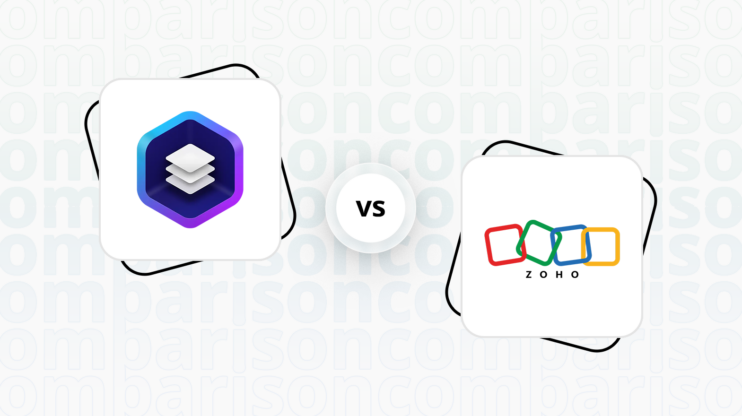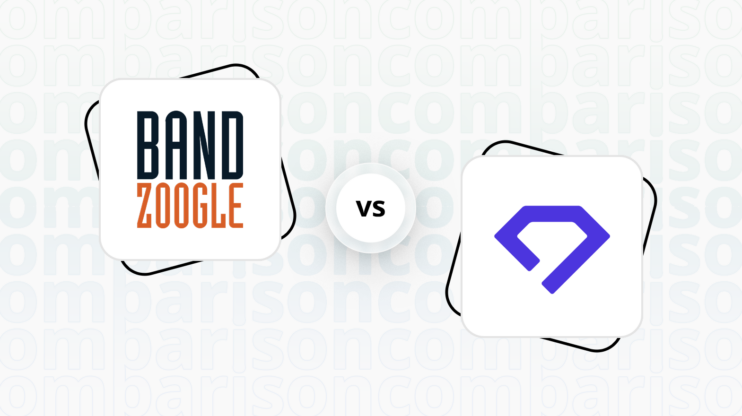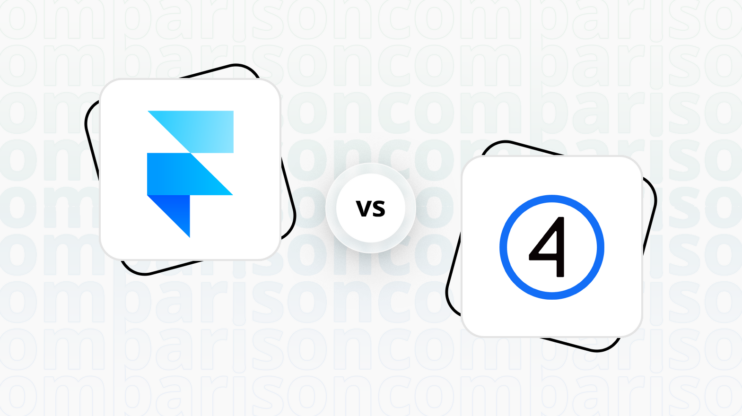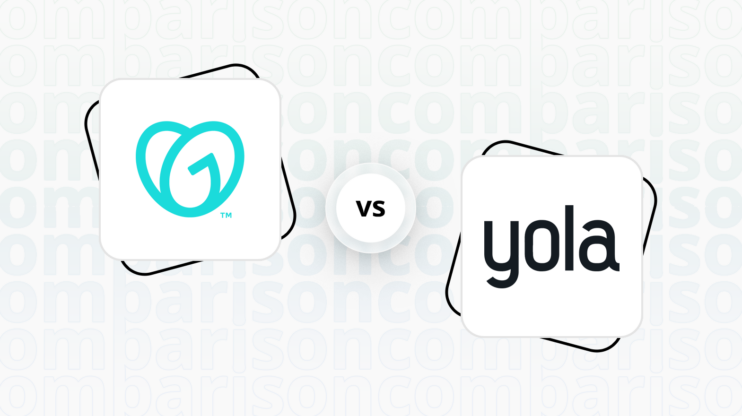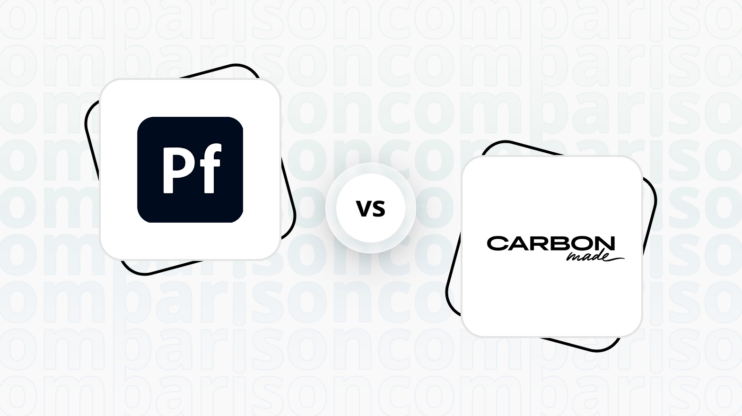Final verdict
Weebly and Elementor both offer robust website building solutions, but they cater to different user needs and preferences.
-
Weebly (Overall Grade: 7.3/10)
is a user-friendly platform ideal for beginners and small businesses. It provides a straightforward drag-and-drop interface, making it easy to create and manage websites without technical expertise. Weebly’s ecommerce features, SEO tools, and integration with third-party apps make it a solid choice for those looking to establish an online presence quickly and efficiently. When comparing Weebly vs Elementor, Weebly stands out for its simplicity and ease of use, making it a great option for users who prioritize accessibility and straightforward functionality. -
Elementor (Overall Grade: 7.4/10)
offers a more flexible and customizable website building experience, particularly for WordPress users. Its visual drag-and-drop interface, extensive range of widgets, and templates provide greater creative control and design flexibility. Elementor’s integration with WooCommerce and other WordPress plugins enhances its functionality, making it suitable for both beginners and professional web designers. Considering Weebly vs Elementor, Elementor is the preferred choice for users who seek advanced customization options and a more versatile design experience.

|

|
|
|---|---|---|
|
Design functionalities & templates |
7.4 |
9.2 |
|
Ease of use |
8.1 |
8.8 |
|
Ecommerce |
7.1 |
7.6 |
|
Website Editors |
7.6 |
8.5 |
|
Product testing options |
8.3 |
5.6 |
|
Price |
8.4 |
8.0 |
|
Hosting quality |
7.7 |
7.8 |
|
Website speed optimization |
7.9 |
6.7 |
|
Plugins and integrations |
7.5 |
7.6 |
|
Marketing features |
7.1 |
7.8 |
|
Customer support |
7.3 |
7.2 |
|
Security |
8.3 |
9.1 |
|
AI capabilities |
1.8 |
7.4 |
|
User Management |
6.5 |
8.8 |
Best for ecommerce
 7.1
7.1
 7.6
7.6
Verdict
: Weebly is user-friendly and suitable for small to medium-sized stores, while Elementor offers more advanced customization and integration options for those using WordPress.
-
Weebly
: Weebly provides a straightforward ecommerce solution with features like unlimited product listings, secure checkout, and customizable shipping options. However, it has limitations in design flexibility and advanced features, which are often available only with paid plans. Weebly is ideal for users who need a simple, easy-to-use platform for their online store. -
Elementor
: Elementor, integrated with WooCommerce, offers extensive design flexibility and a variety of ecommerce-specific widgets. It supports customizable product pages and responsive design templates, making it suitable for users who want to leverage WordPress’s capabilities. However, it may require a learning curve and additional plugins for advanced features, making it more complex but also more powerful for ecommerce needs.
Best for informational & business websites
 7.9
7.9
 8.9
8.9
Verdict
: Elementor is the superior choice for creating highly customizable and visually appealing informational business websites, while Weebly offers a more straightforward, user-friendly experience.
-
Weebly
: Weebly is a solid option for those who prefer a simple, drag-and-drop interface with a variety of themes and SEO tools. It is particularly suitable for beginners and small businesses looking for an easy-to-use platform with essential features for building an informational website. However, it may lack the advanced customization options that more experienced users might seek. -
Elementor
: Elementor excels in providing extensive customization options and a wide range of templates, making it ideal for users who want complete control over their website’s design. Its integration with WordPress and various plugins enhances its functionality, making it a versatile choice for both beginners and professional web designers. When comparing Weebly vs Elementor, Elementor’s flexibility and advanced features make it the preferred choice for creating sophisticated informational business websites.
Detailed comparison
Design functionalities & templates
Design FunctionalitiesRepresents how well each platform allows for creative design and customization of websites.Score Components:
- Template Variety (30%): Range and quality of design templates.
- Customization (30%): Flexibility and options for design alterations.
- User Interface (20%): Ease and intuitiveness of the design process.
- Responsiveness (10%): Adaptability to different devices and screen sizes.
- Innovation (10%): Unique design features and tools.
 7.4
7.4
 9.2
9.2
🏆
Winner: Elementor.
If you’re looking for a platform that offers more creative control, a wider range of templates and designs, and higher customization flexibility, Elementor is the preferred choice.
Weebly offers a curated selection of templates, numbering in the low hundreds, which is fewer than some competitors. However, the emphasis is on high-quality, professionally designed templates covering various categories such as business, ecommerce, portfolio, blog, personal, and events. Weebly’s templates are praised for their clean, modern, and responsive design, with easy customization options for colors, fonts, layout, images, and content.
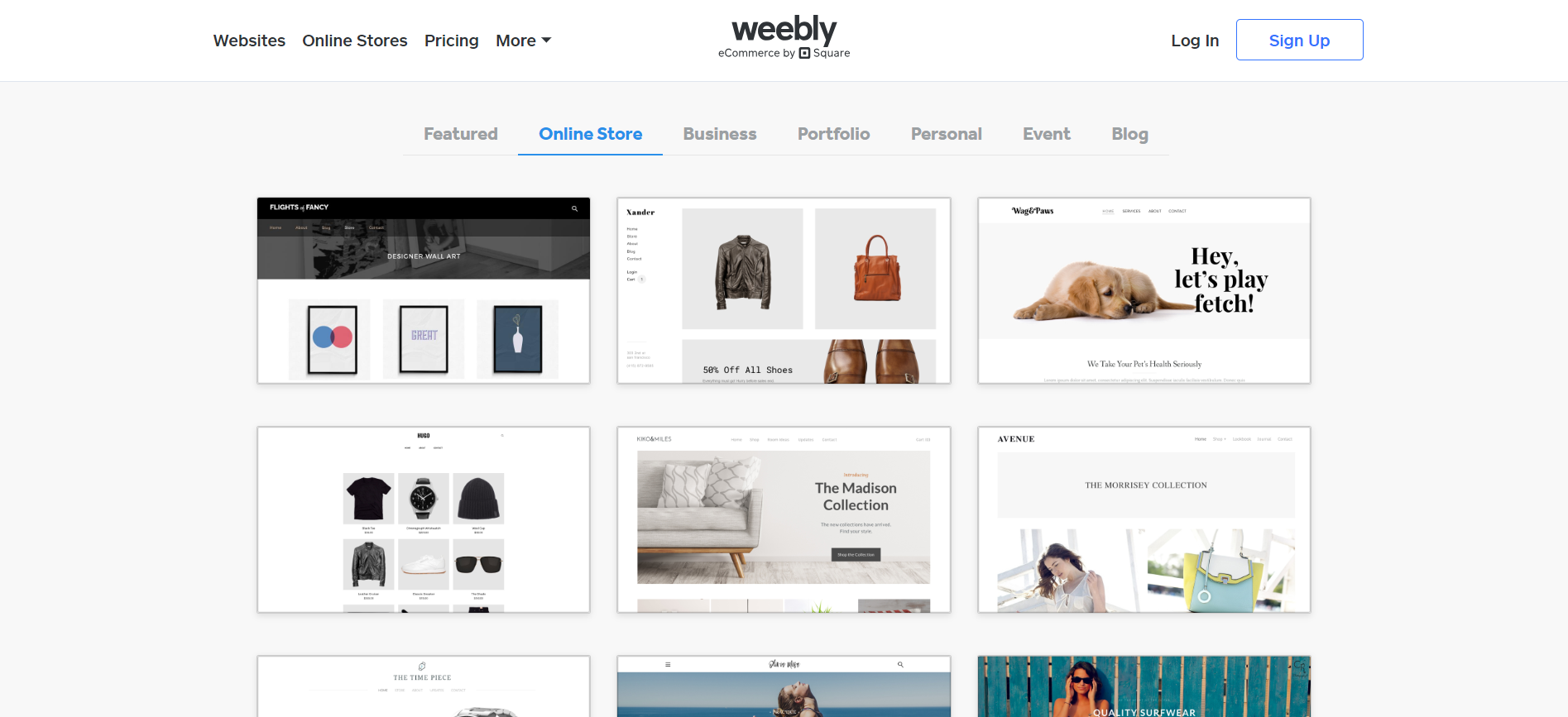

Compared to Weebly, Elementor offers an extensive range of templates and designs, with over 100 responsive website kits covering various categories like business, creative, education, and more, directly available through Elementor’s platform. Additional sources like Envato Elements, Template Monster, and others provide a wider selection, including free and premium options, catering to diverse web design needs. These templates are designed to be user-friendly, facilitating easy customization and quick website development across different sectors.
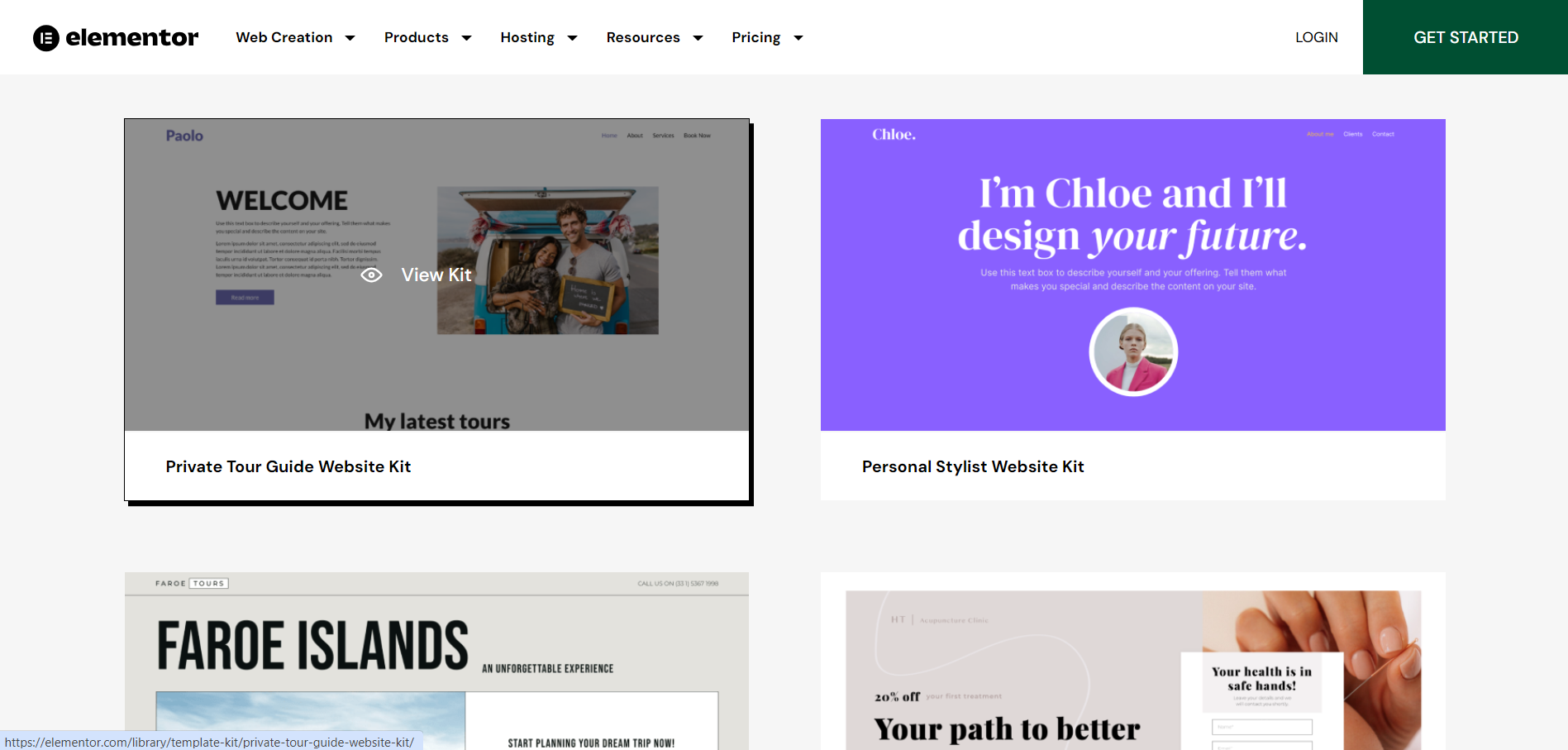
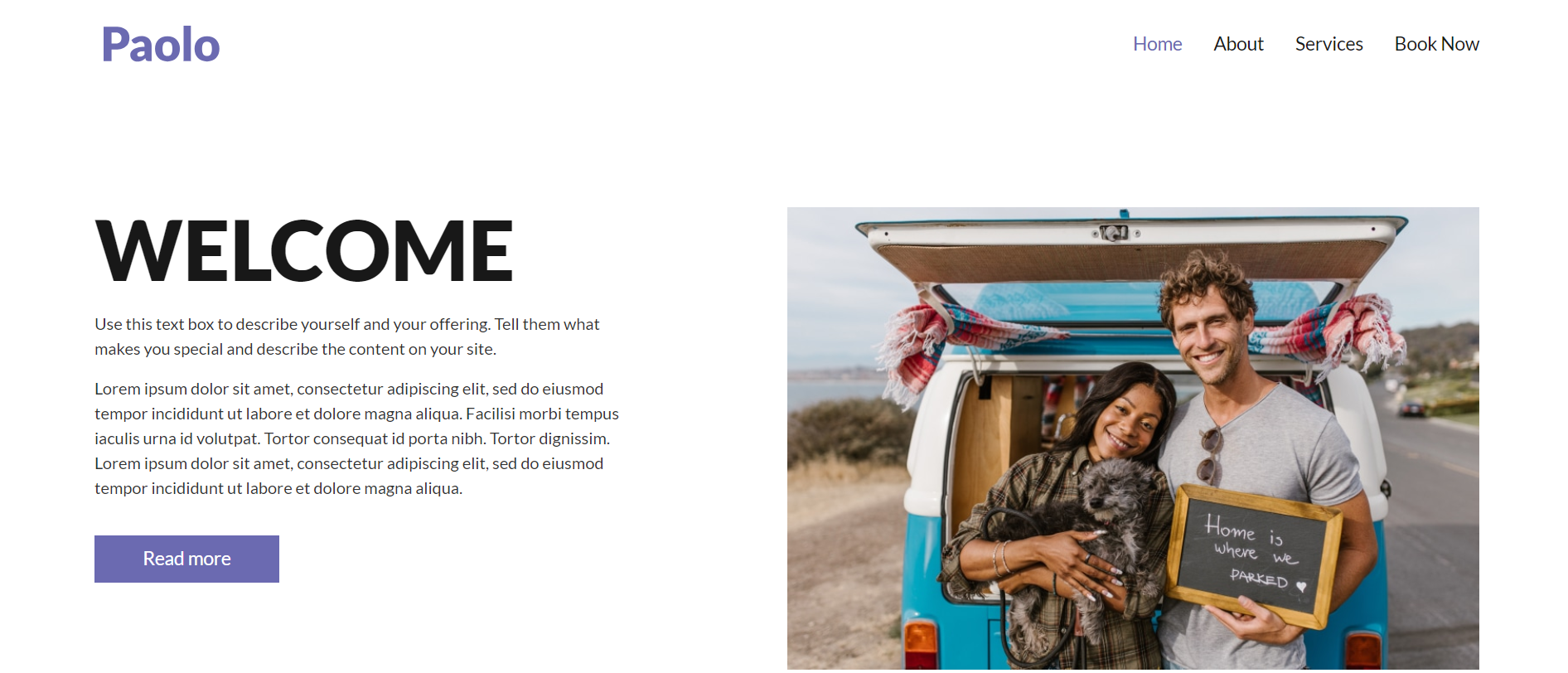
Get a head start on website creation with AI
Create a custom website tailored to your business needs 10X faster with 10Web AI Website Builder!
Ease of use
Ease of useReflects the platform’s overall user-friendliness.Score
Components:
- Learning curve (40%): Quickness and ease of getting started.
- Interface design (30%): Simplicity and intuitiveness of layout.
- User guidance (20%): Quality of tutorials and support.
- Flexibility (10%): Adaptability to various user skills.
 8.1
8.1
 8.8
8.8
🏆 Winner: Elementor
. Scoring 8.8, Elementor edges out Weebly, which scored 8.1, in terms of ease of use. Both platforms offer user-friendly interfaces and drag-and-drop functionality, but Elementor’s wide range of pre-designed templates and widgets streamline the website creation process, making it slightly more user-friendly.
Learning Resources
🏆 Winner: Elementor
. Both platforms offer extensive learning resources, but Elementor’s Elementor Academy and the availability of numerous free resources such as blogs, eBooks, and YouTube channels make learning Elementor accessible for anyone looking to design or enhance their website.
For ecommerce
EcommerceMeasures the platform’s effectiveness in supporting online business activities.Score Components:
- Ecommerce themes and templates (20%): Variety and design of templates.
- Product management (25%): Ease of managing and organizing products.
- Payment options (25%): Variety and convenience of payment methods.
- Ecommerce features (20%): Features for managing an ecommerce store.
- Integration (10%): Compatibility with external e-commerce tools and services.
 7.1
7.1
 7.6
7.6
Weebly and Elementor both offer ecommerce capabilities, but they cater to different needs and preferences. Weebly provides a user-friendly ecommerce solution with features like unlimited product listings, secure checkout, customizable shipping options, and discount promotions. However, it has limitations such as less design flexibility in templates, certain advanced features being available only with paid plans, transaction fees on the free plan, and the absence of built-in marketing tools, which may require integration with third-party solutions.
Elementor, on the other hand, offers robust e-commerce capabilities through its seamless integration with WooCommerce, providing customizable product pages, a variety of e-commerce-specific widgets, and responsive design templates for building online stores. While it offers extensive design flexibility and marketing tools, users may face a learning curve and potential performance issues with extensive widget use. The need for additional plugins and the cost of Elementor Pro for advanced features can also add complexity and expense.

|

|
|
|---|---|---|
|
Ecommerce themes and templates |
6.5 |
7.8 |
|
Product page customization |
6.8 |
8.4 |
|
Payment processing and commissions |
7.0 |
7.5 |
|
POS capabilities |
6.0 |
5.5 |
|
Payment gateways |
7.5 |
7.0 |
|
Product numbers |
7.0 |
7.0 |
|
Additional ecommerce features |
6.7 |
8.0 |
Weebly ecommerce features:
- Unlimited products
- Inventory management
- Product reviews and ratings (Paid plans)
- Secure checkout
- Shipping options
- Abandoned cart recovery (Paid plans)
- Basic analytics
- SEO tools
- Marketing integrations (Paid plans)
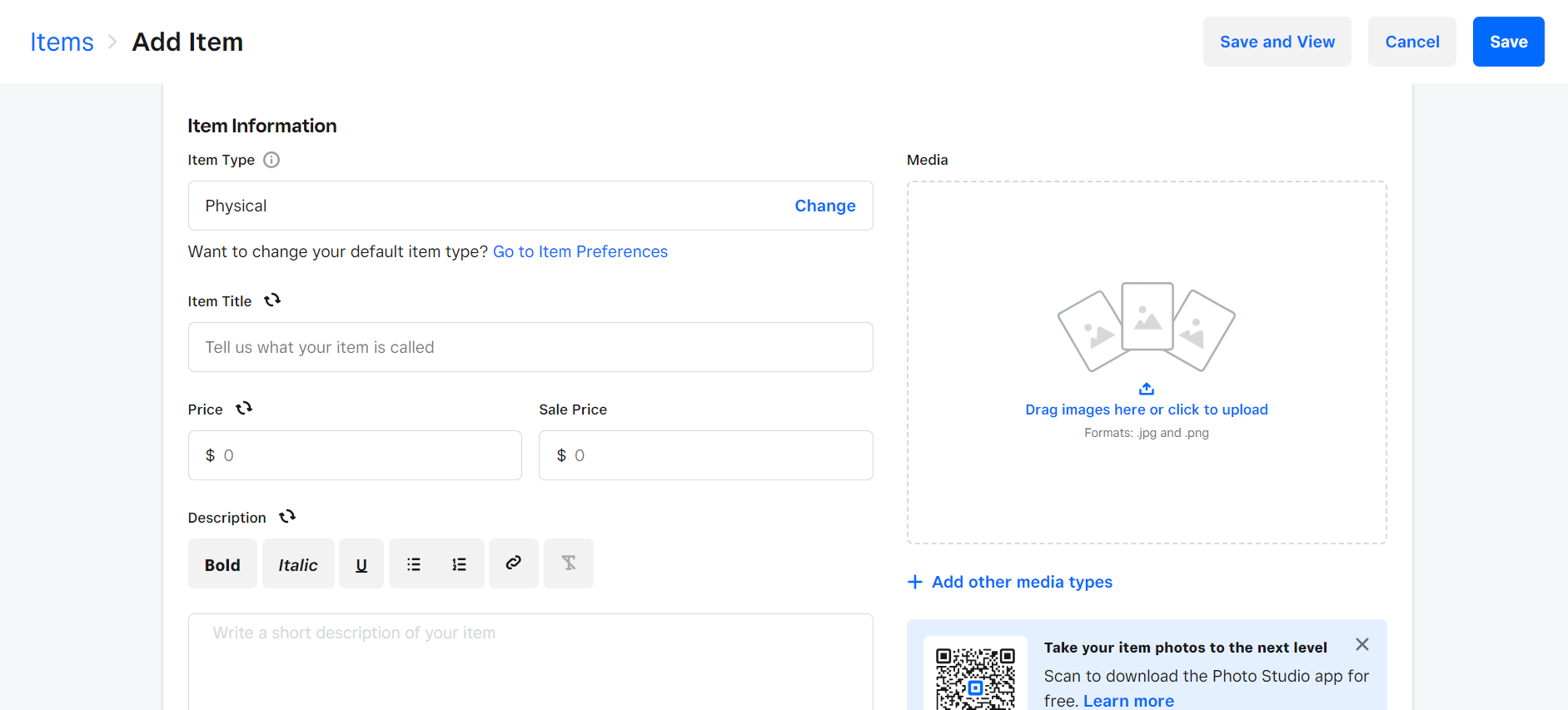
Elementor ecommerce features:
- WooCommerce Integration
- Customizable Product Pages
- Ecommerce Widgets
- Product Categories and Filters
- Shopping Cart Customization
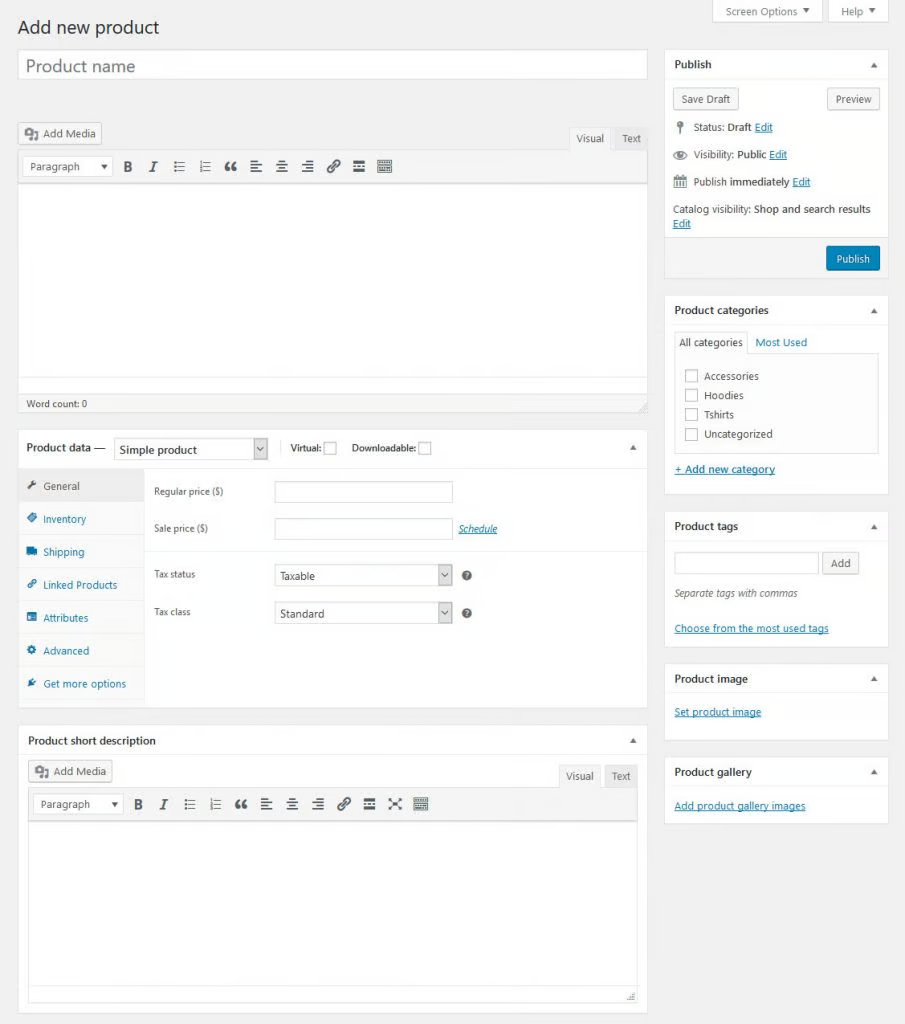
Ecommerce themes & templates
Weebly provides ecommerce-specific themes with a decent range of styles, offering built-in features like product galleries and optimized checkout flows. While customization options include adjustments to colors and fonts, limitations exist compared to dedicated platforms, with a smaller theme selection and less design flexibility, potentially requiring additional costs for premium themes with advanced features.
Elementor offers a diverse range of ecommerce-specific templates suitable for various online stores, from free options for budget-conscious users to premium templates with advanced customization features. These templates are designed to be mobile-responsive and SEO-friendly, ensuring optimal performance across devices and search engines. With a focus on user experience, Elementor templates allow for easy customization, including color and font changes, addition of product pages, and optimization for mobile use, although users may encounter issues like slow loading speeds or broken links.
Product page customization
Weebly allows a decent level of product page customization through its user-friendly interface, offering options for layout, colors, fonts, backgrounds, and content. While not as extensive as dedicated ecommerce platforms, it enables personalized and visually appealing product pages. Advanced customization, including custom CSS and app integrations, is available with paid plans, but limitations exist in design flexibility compared to dedicated platforms.
Elementor offers extensive customization options for WooCommerce product pages, including custom layouts, WooCommerce widgets for various product elements, and options for styling product galleries and ‘Add to Cart’ buttons. It allows for the display and customization of product variants, although the number of variants is technically limited by WooCommerce, not Elementor. Custom CSS and mobile responsiveness ensure that product pages look good on all devices, enhancing the shopping experience. The actual handling of product details and variants is managed by WooCommerce, with Elementor providing the tools for visual customization.
Payment processing
When it comes to payment processing, Weebly seamlessly integrates with popular payment processors such as Square, Stripe, PayPal, and others, enabling secure and convenient online transactions for your store. Users can choose their preferred gateway, set up payment processing within Weebly’s settings, and benefit from features like secure checkout and, on paid plans, options for recurring payments and international transactions.
Elementor supports several payment gateways, notably through plugins and integrations, with Stripe and PayPal being prominent options for simple and widespread use. These gateways charge their own transaction fees, typically around 2.9% + $0.30 per transaction, but Elementor itself does not impose additional fees for transactions. While direct POS capabilities are not a primary feature of Elementor integrations, some supported payment gateways offer their own POS solutions for physical transactions.
Website Editors
Website EditorsEvaluates the platforms’ website building and editing capabilities.Score Components:
- Customization tools (40%): Range and power of editing features.
- Editor usability (30%): User experience within the editor.
- Design flexibility (20%): Freedom in layout and design changes.
- Update and maintenance ease (10%): Simplicity of updating and maintaining the site.
 7.6
7.6
 8.5
8.5
🏆
Winner: Elementor
. Elementor, with a score of 8.5, offers a drag-and-drop interface that makes it easy to customize layouts, add content, and style websites visually in real-time. It provides a wide array of widgets and templates, responsive design options, and advanced features like custom CSS, role-based access control, and integration with a variety of marketing tools.
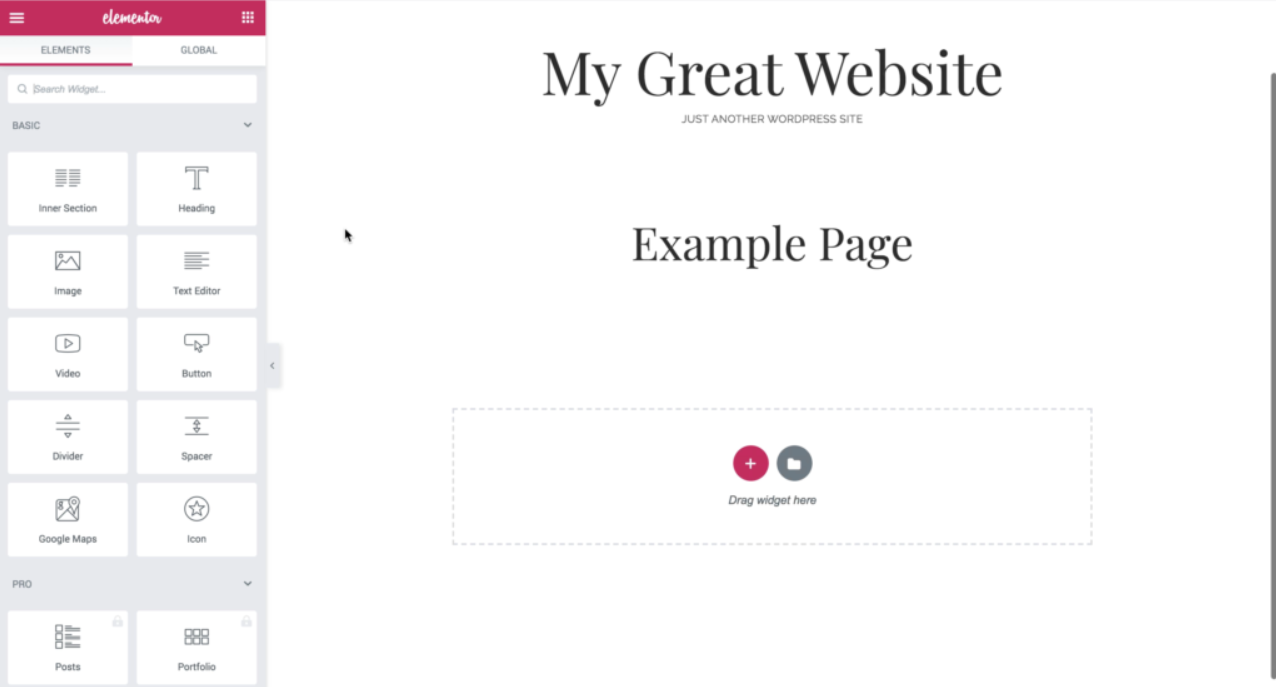
Weebly’s editor, scoring 7.6, stands out for its drag-and-drop simplicity, catering to beginners with an intuitive interface and visual editing. It features a range of pre-designed templates, customization options, and content management tools. However, it has some limitations in design flexibility and advanced features, with certain functionalities requiring a move to paid plans.
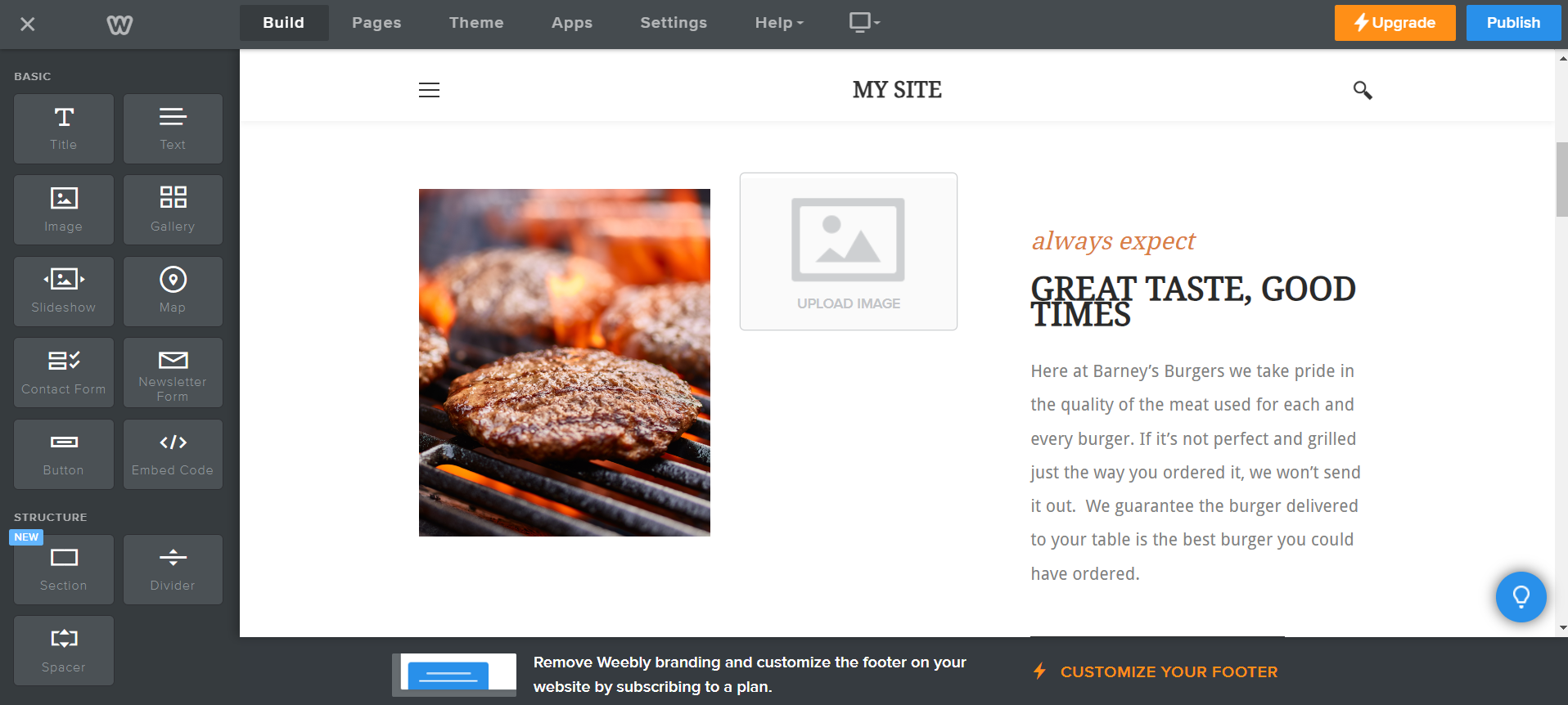
Mobile editor/app
 8.1
8.1
 0
0
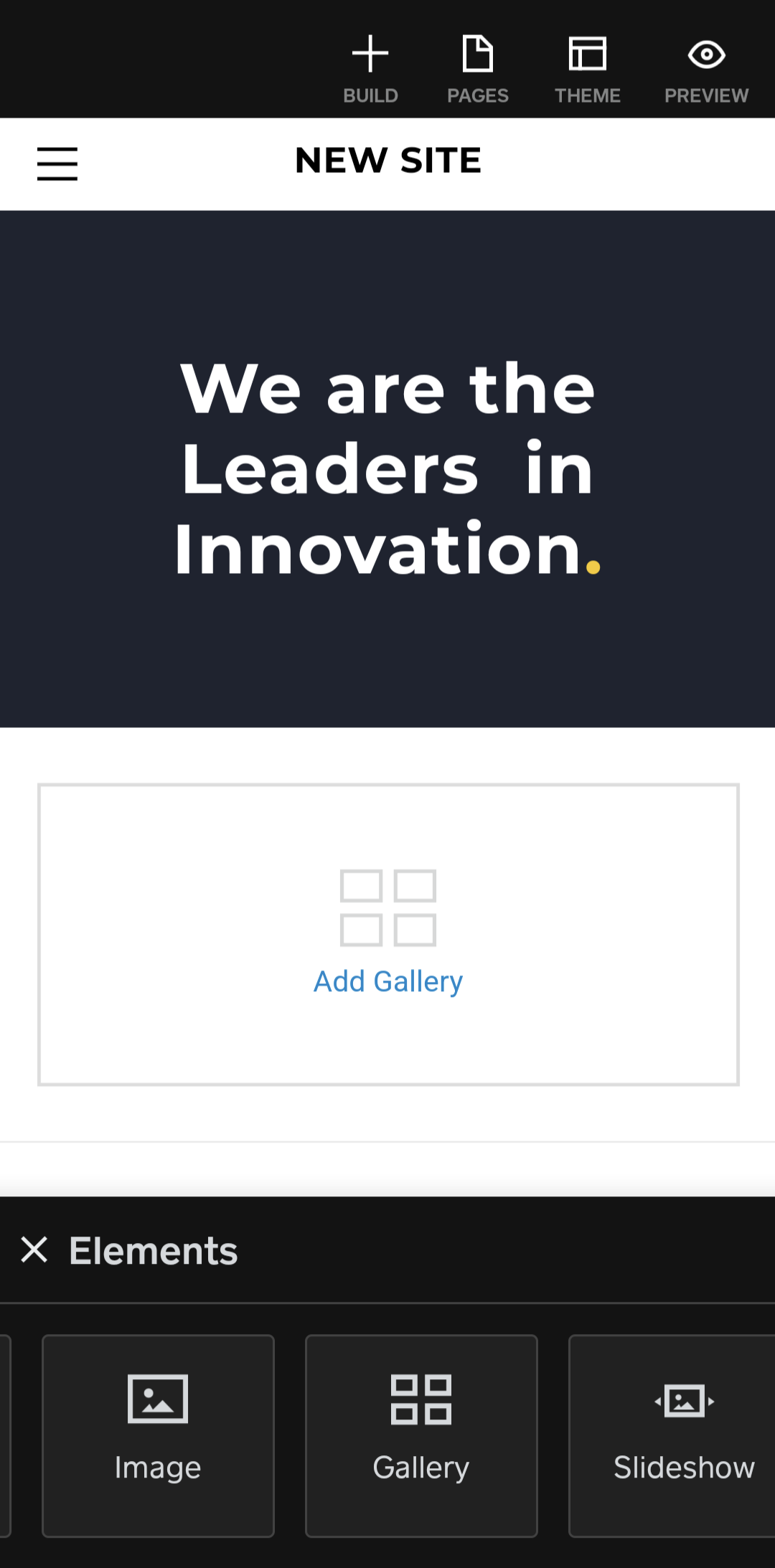
🏆
Winner: Weebly
. Both Weebly and Elementor offer robust website building capabilities, but when it comes to mobile editing, Weebly takes the lead. Weebly’s mobile app allows users to manage and make basic edits to their websites on the go. While it offers features like content management and basic design customization, it has limitations, such as no advanced editing capabilities or extensive design flexibility, making it best suited for quick content updates rather than major design changes.
On the other hand, Elementor does not have a dedicated mobile editor, making Weebly the clear winner in this category.
Product testing options
Product Testing OptionsAssesses the options for trying out platform features before commitment.Score Components:
- Trial quality (40%): Extent and usefulness of the trial or free version.
- Feature accessibility (30%): How many features are available to test.
- Trial duration (20%): Length of the trial period.
- Ease of transition (10%): Smoothness of moving from trial to paid plans.
 8.3
8.3
 5.6
5.6
Overall Result
:
Weebly Wins
. Weebly scores 8.3 in product testing options, offering a free version, no trial version but a 30-day money-back guarantee, and the possibility to test all premium features within the refund window. Elementor, scoring 5.6, also offers a free version (only for self-hosted WordPress.org), no trial version, a 30-day money-back guarantee, and the possibility to test all premium features during the refundable period.

|

|
|
|---|---|---|
|
Free Plan |
Yes |
Yes (only for self-hosted WordPress.org) |
|
Trial Duration |
No (30-day money-back guarantee) | No (30-day money-back guarantee) |
|
Testing Premium Features |
Yes, within the refund window |
Yes, during the refundable period |
Price
PriceLooks at the cost-effectiveness and value for money of each platform.Score Components:
- Plan value (40%): What each pricing tier offers.
- Transparency and clarity (30%): Clearness of pricing structures.
- Flexibility of plans (20%): Range of options to suit different budgets.
- Hidden costs (10%): Additional expenses not included in the plan.
 8.4
8.4
 8.0
8.0
Weebly and Elementor both offer a range of price plans, but Weebly has a slight edge in terms of value for money.

|

|
|
|---|---|---|
|
Free |
Free ($0/month): Basic template selection, 500MB storage, Weebly ads, limited features. |
No offering at this amount. |
|
$0-$8 |
Personal ($6/month): Custom domain, unlimited storage, ad-free, limited SEO and email marketing tools. Value for price: 6.5 |
No offering at this amount. |
|
$8-$15 |
Professional ($12/month): Advanced design options, blog membership features, advanced SEO tools, form analytics. Value for price: 7.5 |
Basic ($9.99/month): 1 website, with 10GB SSD storage, 25k monthly visitors, 30GB monthly bandwidth, daily auto backups stored for 14 days, Cloudflare CDN, and integrated caching tool. Value for price: 6.5 |
|
$15-$20 |
No offering at this amount. |
Business ($19.99/month): 1 website, with 20GB SSD storage, 50k monthly visitors, 50GB monthly bandwidth, daily auto backups stored for 30 days, Cloudflare CDN, integrated caching tool and access to staging environment. Value for price: 7.5 |
|
$20-$30 |
Performance ($26/month): Advanced ecommerce features, lead capture tools, custom code injection, marketing automation. Value for price: 8.5 |
Grow ($22.99/month): 3 websites, with 30GB SSD storage, 75k monthly visitors, 75GB monthly bandwidth, daily auto backups stored for 30 days, Cloudflare CDN, integrated caching tool, access to staging environment and site cloning. Value for price: 8.5 |
|
$40+ |
No offering at this amount. |
Scale ($49.99/month): 10 websites, with 40GB SSD storage, 100k monthly visitors, 100GB monthly bandwidth, daily auto backups stored for 30 days, Cloudflare CDN, integrated caching tool, access to staging environment and site cloning. Value for Price: 9.0 |
location. As a result in rare cases the prices displayed here can differ from the ones you see on their
websites.
Hosting quality
Hosting
qualityExamines the reliability and performance of the hosting solutions.Score Components:
- Uptime (40%): Consistency and reliability of website availability.
- Speed (30%): Loading times and performance.
- Bandwidth and storage (20%): Sufficiency of resources provided.
- Data centers (10%): Quality and distribution of hosting infrastructure.
 7.7
7.7
 7.8
7.8
🏆
Winner: Elementor
Elementor edges out Weebly with its Google Cloud powered hosting, daily auto backups, and a clear uptime guarantee. Weebly, while offering unlimited storage and bandwidth on its paid plans, has been critiqued for slow page loading times and lack of automated backup services. Elementor’s managed WordPress hosting and commitment to reliability give it a slight advantage.

|

|
|
|---|---|---|
|
Do they offer hosting? |
Yes, included in all paid plans |
Yes, included in all paid plans |
|
Data Centers: |
Weebly leverages a global network of data centers to deliver reliable and efficient website hosting. However, they do not publicly disclose, the specific locations of their data centers due to security and technical reasons. |
1 data center in Belgium |
|
Type of hosting: |
Shared Hosting, Cloud Based Hosting, Managed Hosting |
Managed WordPress Hosting |
|
Uptime: |
99.9% |
99.9% |
|
Uptime Guarantee: |
Yes, 99.95% |
Yes, 99.9% |
Website Speed Optimization
Website Speed OptimizationEvaluates optimization of website loading timesScore Components:
- PageSpeed Score (30%): Google’s score indicating performance optimization.
- Loading Time (30%): The average time until a website is fully interactive.
- Mobile Optimization (15%): Optimization effectiveness for mobile devices.
- Resource Optimization (15%): Optimizing images, scripts, and other heavy resources.
- CDN Usage (10%): Use of CDN to enhance speed across geolocations.
 7.9
7.9
 6.7
6.7
🏆 Winner: Weebly
Both Weebly and Elementor prioritize website performance and page speed, but Weebly takes the lead with its comprehensive speed optimization strategies and significant improvements in Core Web Vitals performance.

|

|
|
|---|---|---|
|
Focus |
Load balancing, CDN |
Lazy Loading, Code Minification, Caching, CDN |
|
Performance Tools |
Google Lighthouse, PageSpeed Insights |
Google PageSpeed Insights Integration |
|
Key Strategies |
Load balancing, CDN |
Lazy Loading, Code Minification, Caching, CDN |
|
Load Times |
2s to 4s |
Varies depending on optimization and website complexity |
|
Page Speed Scores Range |
Average 80+/100 |
Varies depending on optimization and website complexity |
|
Core Web Vitals Improvement |
Significant enhancements in CWV performance |
No disclosed information |
Weebly has implemented a variety of measures to enhance its website speed, including load balancing, use of a Content Delivery Network (CDN), automatic image optimization, lazy loading for content, code minification, and caching. These strategies, along with streamlined JavaScript usage and an enhanced server infrastructure, aim to boost website loading speed and responsiveness. As a result, Weebly websites typically have load times between 2 to 4 seconds and an average PageSpeed score of 80+/100.
On the other hand, Elementor’s speed optimization strategies include lazy loading, code minification, caching, and use of a CDN. However, the load times and PageSpeed scores for Elementor websites can vary significantly depending on the level of optimization and the complexity of the website. Elementor does not disclose any specific information about its improvements in Core Web Vitals performance.
Get a head start on website creation with AI
Create a custom website tailored to your business needs 10X faster with 10Web AI Website Builder!
Plugins and integrations
Plugins and integrationsMeasures the range and effectiveness of additional plugins and integrations.Score Components:
- Variety of options (40%): Range of available add-ons.
- Integration smoothness (30%): Ease of integrating plugins into the site.
- Quality of plugins (20%): Functionality and reliability of the options.
- Custom integration capabilities (10%): Support for custom or third-party integrations.
 7.5
7.5
 7.6
7.6
🏆 Winner: Elementor.
Elementor, with a score of 7.6, slightly edges out Weebly’s 7.5. Elementor’s wide range of add-ons, both free and premium, offer advanced features and extensive customization options. Weebly, on the other hand, also provides a variety of integrations through its App Center, but Elementor’s superior integration with WordPress and third-party services gives it the upper hand.
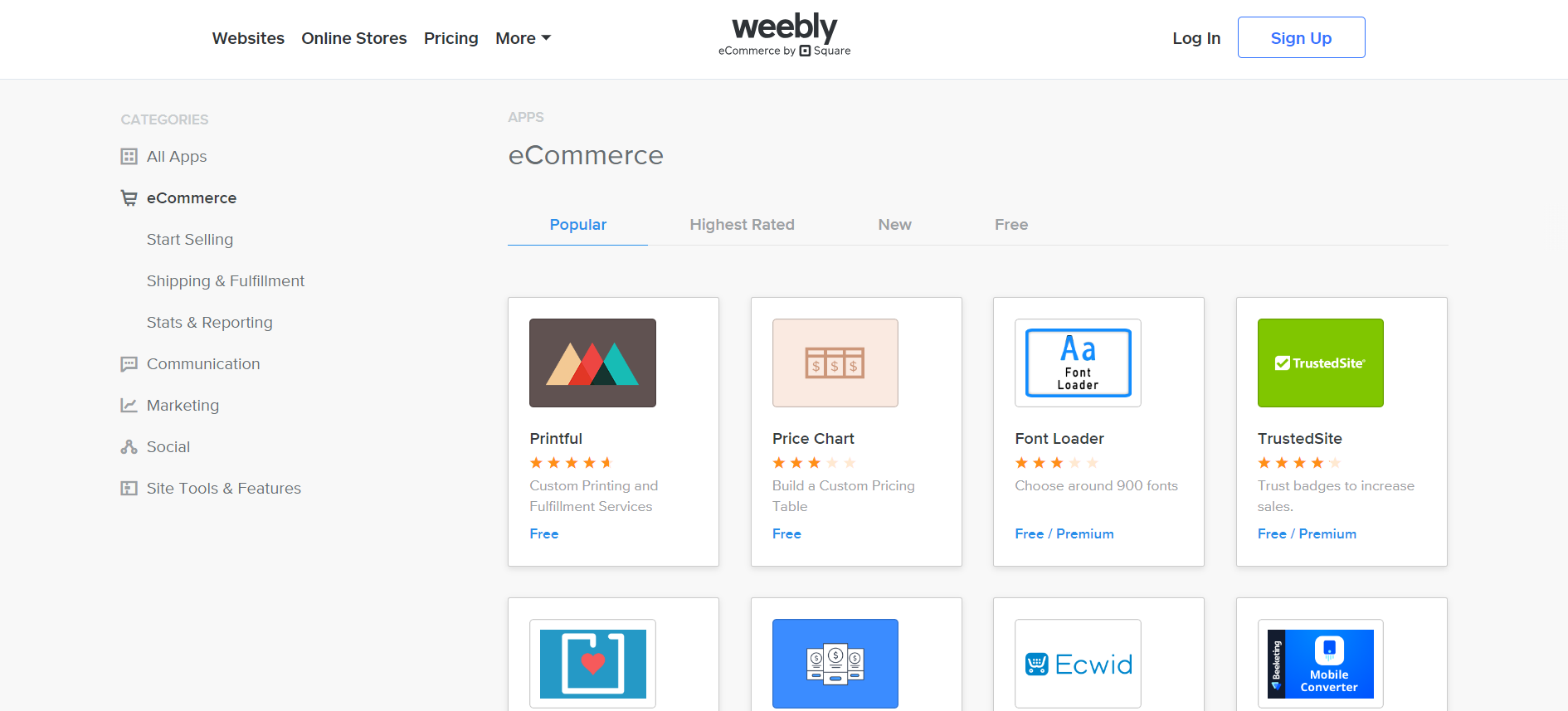
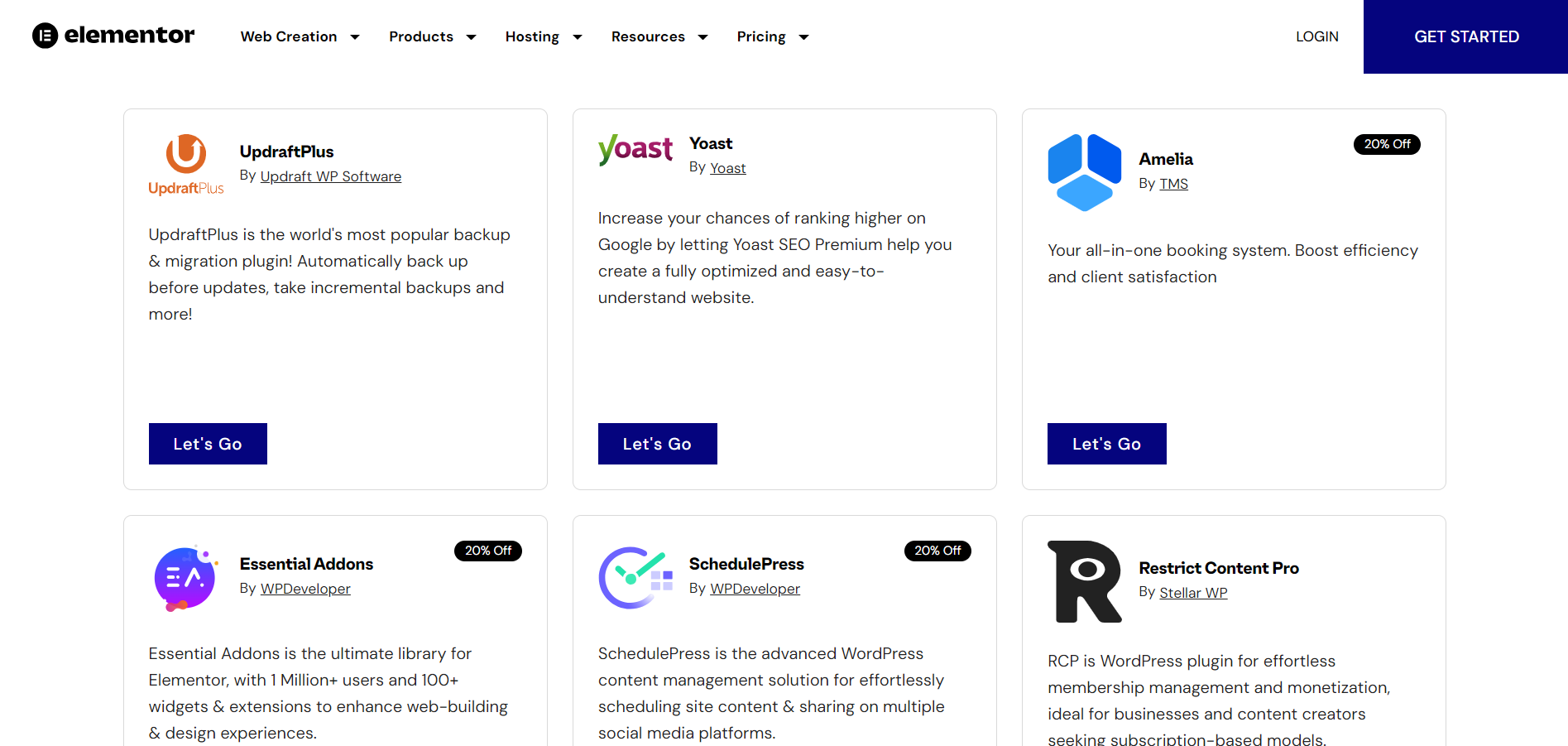
Marketing Features
Design FunctionalitiesRepresents how well each platform allows for creative design and customization of websites.Score Components:
- Template Variety (30%): Range and quality of design templates.
- Customization (30%): Flexibility and options for design alterations.
- User Interface (20%): Ease and intuitiveness of the design process.
- Responsiveness (10%): Adaptability to different devices and screen sizes.
- Innovation (10%): Unique design features and tools.
 7.1
7.1
 7.8
7.8
🏆
Overall Winner: Elementor
. Elementor edges out Weebly with a slightly higher marketing features score, indicating more advanced or effective marketing tools. Both platforms offer similar features, but Elementor’s integrations with Google Analytics and other marketing tools provide more comprehensive data and promotional capabilities.

|

|
|
|---|---|---|
|
SEO Tools |
|
|
|
Email Marketing |
|
|
|
Blogging |
|
|
|
Social Media Integration |
Easy link to social media accounts and share buttons |
Integration of social media buttons |
|
Analytics and Reporting |
Built-in analytics for tracking site performance |
Integration of Google Analytics |
|
Ads and Promotions |
Integrated marketing tools for creating and managing ads |
Site-based promotions and integrations with marketing tools |
Customer Support
Customer supportEvaluates the quality and availability of support options.Score Components:
- Response time (40%): Speed of support responses.
- Support quality (30%): Effectiveness and helpfulness of the support.
- Availability (20%): Range of support channels (phone, chat, email).
- Resource richness (10%): Quality of self-help and educational materials.
 7.3
7.3
 7.2
7.2
🏆 Winner: Weebly
. In the Weebly vs Elementor comparison, Weebly edges out Elementor with a slightly higher customer support score. Weebly offers a comprehensive support system that includes an extensive Online Help Center, Community Forum, Email Support, and limited hours for Live Chat and Phone Support. Pro and Business plan users benefit from priority phone support and a dedicated account manager, making it a robust option for small businesses with enterprise-like needs.
Elementor, on the other hand, provides 24/7 support through ticketing and live chat, ensuring users can get help at any time. While it doesn’t specifically cater to large enterprises, its global Customer Experience agents offer continuous support, making it a reliable choice for users who need round-the-clock assistance.
Security
SecurityLooks at the platforms’ security measures and data protection.Score Components:
- Data protection (40%): Safeguards for user and customer data.
- SSL and encryption (30%): Implementation of secure connections.
- Compliance (20%): Adherence to industry security standards.
- Regular updates (10%): Frequency of security updates and patches.
 8.3
8.3
 9.1
9.1
🏆
Winner: Elementor
. Elementor’s commitment to security is evident in its robust hosting features, ISO 27001 certification, and proactive Bug Bounty program. It leverages Google Cloud’s infrastructure for high security, including end-to-end encryption, and adheres to GDPR and other data protection regulations.
Although Weebly also prioritizes the privacy and security of user data, employing encryption, access controls, and regular backups. It complies with data privacy regulations like GDPR and CCPA and offers strong password security and two-factor authentication. However, it falls slightly short of Elementor’s comprehensive security measures.
AI Capabilities
AI capabilitiesMeasures the effectiveness of AI-driven features and tools.Score Components:
- Automation efficiency (40%): Impact of AI on streamlining processes.
- Personalization (30%): AI-driven customization for users or customers.
- AI-Assisted design (20%): Role of AI in website design and functionality.
- Data analysis (10%): Use of AI in interpreting user data and analytics.
 1.8
1.8
 7.4
7.4

|

|
|
|---|---|---|
|
Dedicated AI Builder |
|
Elementor’s AI builder generates text, custom codes, and images |
|
AI Ecommerce Features |
|
AI-driven features for eCommerce websites |
|
AI Content Generation |
Third-party tools for AI-powered content creation |
AI capabilities for text and code generation, and image solutions |
🏆 Winner: Elementor
. Elementor, with a score of 7.4, offers a dedicated AI builder and AI-driven features for eCommerce websites and content generation. These features enhance efficiency and creativity in web design, making it a powerful tool for both beginners and professional web designers.
Weebly, with a score of 1.8, does not have a dedicated AI builder and lacks native AI content generation features. However, it allows the integration of third-party AI-powered tools, offering additional options to enhance the content creation process.
User Management
User ManagementAssesses the platforms’ capabilities in managing user roles, permissions, and accessibility.Score Components:
- Role Customization (40%): Flexibility in creating and defining user roles and
permissions. - Ease of Management (30%): User interface and tools for managing users.
- Access Control (20%): Effectiveness of access control measures for different user
levels. - Scalability (10%): Ability to manage a growing number of users efficiently.
 6.5
6.5
 8.8
8.8
🏆 Winner: Elementor
. Both Weebly and Elementor offer different user management capabilities, but Elementor’s flexibility and customization options give it an edge.
- Weebly’s number of users permitted to edit a website varies depending on the plan selected. The Free Plan allows only one user, suitable for personal or simple projects, while the Personal Plan accommodates two users, making it appropriate for small businesses or collaborative efforts. The Professional Plan permits up to 10 users, catering to growing businesses or teams with specific roles, and the Business Plan offers unlimited user access.
- Elementor’s number of users who can edit or manage a website depends on the roles and permissions set within WordPress, as Elementor operates on WordPress. Administrators have full access to edit any part of the site, including Elementor settings, while Editors can manage posts and pages made with Elementor. Authors and Contributors have limited capabilities, with the former being able to manage their own posts. Elementor Pro offers a Role Manager feature, enabling further customization of what different roles can do within Elementor, but there’s no fixed limit on the number of users—it’s determined by the roles assigned by the site administrator.
Weebly User Roles and Access Levels:
| Role | Description | Access Highlights |
|---|---|---|
| Owner | The primary account holder and creator of the Weebly site. | Full access to all site features, including design, pages, settings, store management, and analytics. |
| Admin | Users granted significant control over the site by the Owner. | Can edit and publish site content, manage store orders, view analytics, and access most site settings, except for site ownership transfer and account deletion. |
| Author | Users with limited permissions, typically focused on content creation. | Can create and edit blog posts, manage comments, and sometimes edit specific pages if granted permission. |
| Store Manager | Specifically focused on e-commerce aspects of the site. | Access to manage and fulfill orders, view store analytics, and edit product details, but cannot change site design or settings. |
Elementor User Roles and Access Levels:
| Role | Description | Access Highlights |
|---|---|---|
| Administrator | Users with full access to all administration features, including Elementor settings. | Can edit all content, Access to Elementor settings, Can install plugins and themes, Can manage users |
| Editor | Users who can manage and publish content including pages and posts. | Can edit pages/posts created with Elementor, Cannot access Elementor settings, Can manage categories, tags, and links, Can moderate comments |
| Author | Users who can publish and manage their own posts. | Can create posts with Elementor, Cannot edit pages, Limited access to media library, Cannot access Elementor settings |
| Contributor | Users who can write and manage their own posts but cannot publish them. | Can create content with Elementor, Cannot publish or edit pages, No access to Elementor settings, Submissions require review by higher-level roles |
Additional Features

|

|
|
|---|---|---|
|
SSL Certificate |
|
|
|
Custom Domain |
|
|
|
Free Custom Domain Included |
|
|
|
International Domains |
|
|
|
Mobile Responsive |
|
|
|
Page Speed |
|
|
|
Website Builder Mobile App |
|
|
|
Convert a Website To An App |
|
|
|
Website Analytics |
|
|
|
Multilingual Sites |
|
|
|
Multiple Users |
|
|
User Feedback
Square Online (formerly Weebly) receives positive reviews for its user-friendly drag-and-drop interface and quick website development features, making it suitable for small businesses. Users highlight its role in efficient appointment booking, saving time in coordination and scheduling. However, some express a desire for more advanced building tools and better pricing. The platform is recognized for streamlining website and payment operations, though opinions on customer service and design limitations are mixed. Overall, it is considered a good, affordable solution for small businesses.
Elementor is widely appreciated for its intuitive drag-and-drop interface, enabling rapid creation of professional and responsive websites without coding skills. It offers a vast range of templates and compatibility with WordPress, making it a go-to for diverse users. Despite its benefits, concerns arise regarding website loading times, subscription costs, and occasional compatibility issues. Feedback on customer support and legacy plan management is mixed, with some users experiencing dissatisfaction. Overall, Elementor is valued for its efficiency in web development, although some aspects, particularly support services, could be improved.
The making of this blog
We followed a clear, step-by-step process to write and research this article.
FAQ
Which is easier to use, Weebly or Elementor?
Can I use Weebly and Elementor for ecommerce?
Which platform offers better design and customization options?
How do Weebly and Elementor compare in terms of pricing?
Which platform is better for beginners wanting to create informational or business websites?
What about website speed and hosting quality?
Can I manage multiple users with Weebly and Elementor?
Which platform has better customer support?
How do the platforms compare in terms of security?
What are the AI capabilities of Weebly and Elementor?










